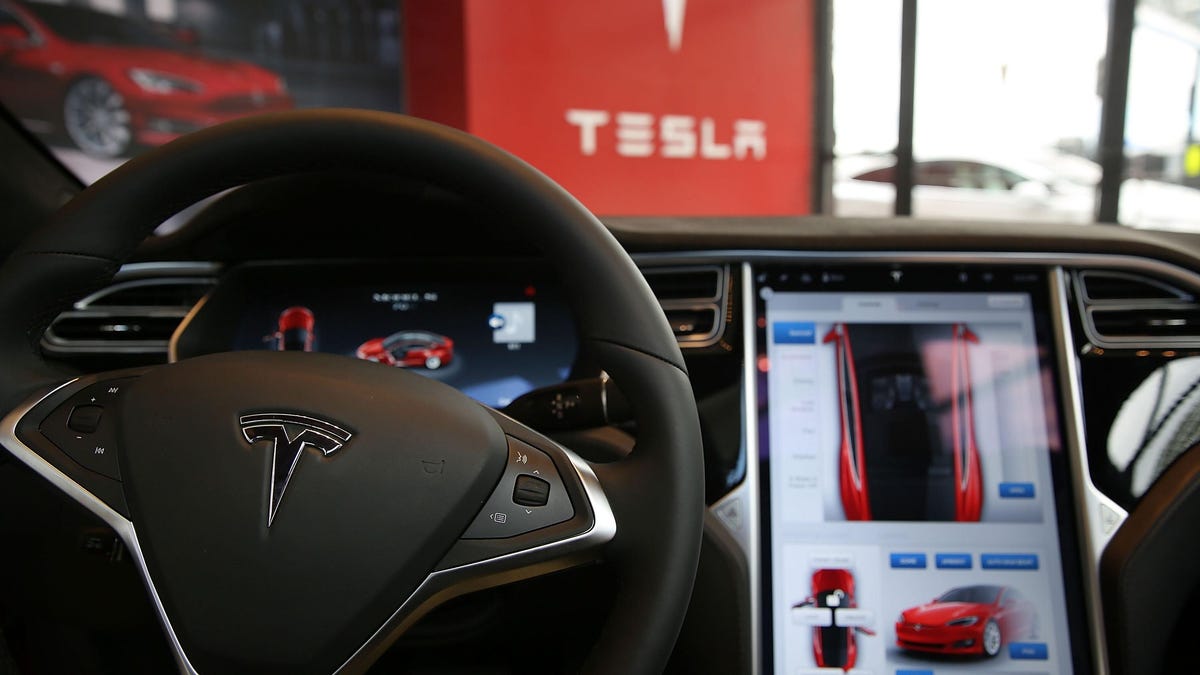
A Tesla console seen in a showroom in Red Hook in Brooklyn in 2016. Photo courtesy Spencer Platt ( Getty Images ).On Tuesday, the National Highway Traffic Safety Administration (NHTSA), announced that vehicle manufacturers must report any incidents in which self-driving and driver-assistance systems are involved in serious accidents.AdvertisementAccording to the Washington Post, the NHTSA stated that all Level 2-5 automation systems will be subject to the new requirements. According to the Washington Post, Level 0 automation is considered to be no automation and Level 1 vehicles that are operated by humans with some driving assistance features. However, the driver must still be engaged while Levels 2-5 require less human intervention on a progressive scale. The new rules require that accidents involving death, hospitalization, pedestrians, tow trucks, or airbags going off be reported within one-day of the automaker being informed. Other crashes must be reported every month.This means that virtually all advanced self-driving technologies and driver-assist technologies currently under development by companies such as Tesla, Alphabet's Waymo, Aurora and major automakers like Toyota will have to comply with the new requirements. It is difficult to find statistics about how safe and dangerous automated or advanced assistance driving might be. Although Level 3 and 5 vehicles are not yet commercially available, several manufacturers are currently testing them. Historically, crash data was stored onboard black boxes. However, vehicles are becoming more connected to the internet and data about assisted or autonomous driving may be transmitted over the air to only manufacturers databases like Tesla.The NHTSA released a statement saying that all incidents in which a Level 2 or higher system was involved during or shortly before a crash will be subject to reporting requirements. This could prove beneficial for manufacturers as it can help boost public confidence in federal government's ability to ensure that autonomous vehicles are safe on our roads.In the past, the feds have largely allowed the emerging sector to be regulated by itself. Autonomous vehicle regulation is left largely to the states. Al Jazeera reports that the NHTSA has sent special investigator teams to 31 accidents involving partially-automated driver-assist system crashes since June 2016.Tesla's Autopilot feature is Level 2. This feature has been particularly scrutinized after several Tesla owners were involved in accidents while it was enabled. Perhaps they believed that AutoPilot was more advanced than it actually is due to the company's marketing. According to the Post more than 20 accidents involving Autopilot have been reported by the NHTSA, including one where a Tesla driver was killed after colliding with a truck. The Verge reported that there have been at most 11 deaths in nine Tesla Autopilot crashes since 2015, and nine more deaths in 11 other accidents around the world.After a 2018 accident in which a distracted worker drove a car that struck and killed Elaine Herzberg, Uber decided to stop self-driving. Waymo, an Alphabet subsidiary, published data last year that showed that its prototype cars were involved with 18 collisions and 29 incidents that required human intervention over the course of 6.1 Million autonomous miles in Phoenix, Arizona. The NHTSA reports 84 injuries per 100 million miles of vehicle mileage in 2019, compared to Waymo's data. In 2016, the RAND Corporation published an analysis claiming it would use data from hundreds of million to billions of vehicle miles to determine how many fatalities and injuries could be caused by driverless vehicles.AdvertisementAl Jazeera reported that the NHTSA also investigates accidents involving partially-automated Lexus, Volvo and Cadillac models.According to Jason Levine, Center for Auto Safety executive director, the agency apparently has finally listened to the Center for Auto Safetys long-standing request for the federal government's oversight of the unregulated technology being tested on America's roads without any warnings to residents nor data being collected.
